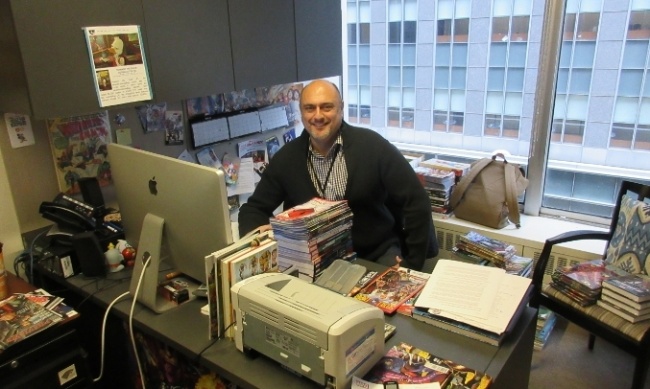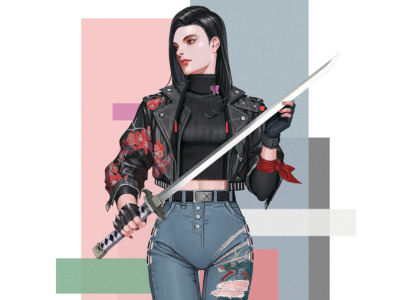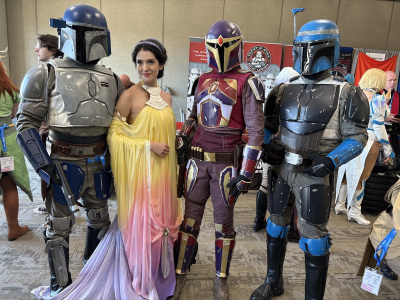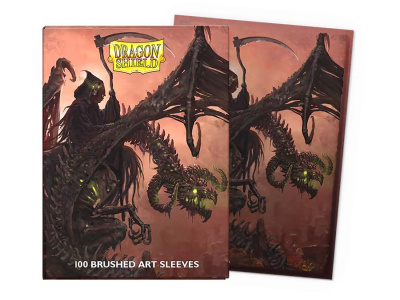David Gabriel: There was just a big shift in the entire industry, and there were a lot of factors behind that. I think everybody had a modicum of blame publisher-wise. I think the economy had a little bit to blame. By economy, I'm talking about what was going on in the outside world which led to people not necessarily wanting to spend money in that October-November time frame.
I do know that, with all the returns that were coming to Diamond, there was a lot of unease in the market. There was money that was missing from the market because of those returns. There was a lot of work that retailers were doing to get all of those returns back.
Because of that, there was anger. There was anger because of economic reasons. There was anger because of story reasons for all of us.
There was probably a little too much product going out at that time. We all got a good kick in the ass over that. What I had said was, after looking at everything that was going on, we knew that we had to make some changes and we couldn't do anything the next month. We had to wait six months before things could start taking place. That's sort of what we're getting to now. I hope that clears it up.
Part of it, but I think also it seemed like tastes changed, because stuff you had been doing in the past wasn't working the same way. Did you perceive that or are we misreading that?
No, I think so. I don't know if those customers with the tastes that had been around for three years really supporting nearly anything that we would try, anything that we would attempt, any of the new characters we brought up, either they weren't shopping in that time period, or maybe like you said their tastes have changed.
There was definitely a sort of nose-turning at the things that we had been doing successfully for the past three years, no longer viable. We saw that, and that's what we had to react to. Yes, it's all of that.
Now the million-dollar question. Why did those tastes change?
I don't know if that's a question for me. I think that's a better question for retailers who are seeing all publishers. What we heard was that people didn't want any more diversity. They didn't want female characters out there. That's what we heard, whether we believe that or not. I don't know that that's really true, but that's what we saw in sales.
We saw the sales of any character that was diverse, any character that was new, our female characters, anything that was not a core Marvel character, people were turning their nose up against. That was difficult for us because we had a lot of fresh, new, exciting ideas that we were trying to get out and nothing new really worked.
[Note: Marvel’s David Gabriel reached out to correct the statement above: "Discussed candidly by some of the retailers at the summit, we heard that some were not happy with the false abandonment of the core Marvel heroes and, contrary to what some said about characters “not working,” the sticking factor and popularity for a majority of these new titles and characters like Squirrel Girl, Ms. Marvel, The Mighty Thor, Spider-Gwen, Miles Morales, and Moon Girl, continue to prove that our fans and retailers ARE excited about these new heroes. And let me be clear, our new heroes are not going anywhere! We are proud and excited to keep introducing unique characters that reflect new voices and new experiences into the Marvel Universe and pair them with our iconic heroes.
"We have also been hearing from stores that welcome and champion our new characters and titles and want more! They've invigorated their own customer base and helped them grow their stores because of it. So we're getting both sides of the story and the only upcoming change we're making is to ensure we don't lose focus of our core heroes."]
It was the old things coming back in that time period, three books in particular, Spider-Man Renew Your Vows, that had Spider-Man and Mary Jane married, that worked. The Venom book worked and the Thanos book worked. You can take what you want out of who might be enjoying those three books, but it is definitely a specific type of comic book reader, comic book collector that really liked those three series.
Do you think it could just be that you maybe hit a tipping point in terms of how much there was of a certain kind of book and that that's what was turning people off, as opposed to what they were?
That could be part of it, sure, definitely. We're open to anything and we're not turning away from any reasoning about that time period. But there was no indication that that was coming. There was no indication that the people who were buying those things didn't want more.
This is a guess. I think we weren't the only publishers to see that. I've been hearing from smaller publishers, from indie publishers, that they also could not get their books out. They could not get their number ones launched. Everybody was having this. Maybe the tipping point was that there was just too much out there and people turned away. Could be.
What we heard people tell us coming out of ComicsPRO was that Marvel was pointing to DC as a reason for market problems. You've talked a little bit of that with regard to returns being in the pipe and that being an issue. I guess the question is do you think that's a fair characterization of what you were saying? Or do you think that is only focusing on one part of it?
I think they only focus on one part of it. When I presented, what I presented was just taking the market share that Diamond put out, not that we devise for ourselves, and showed where the biggest hits to market share for DC was in terms of when units and dollars left the market or left DC based on when their returns were coming in. I said that was one of the reasons for the industry being down dollar-wise.
Another reason was that the industry lost Hastings chain, so nobody bothered to bring that up afterwards.
I was adamant in saying I'm not blaming DC for anything. I'm pointing out what we saw in the Diamond charts and what we knew was coming and what we've heard from retailers and Diamond as well.
Of course, people walked away. You and I have talked about this before. People who always want to bash us wanted to walk away and say that I blamed DC for that. We think it [returnability] was a bad practice. We think it's obvious where it hurt the industry.
I haven't heard from anybody today saying what a great thing that it was for the industry. Maybe I didn't ask them that, but nobody came back and denied that there were cash flow problems as a result of that returnability. That's the only thing I can say that was a problem for the individual retailers economically.
The questions we asked grew mostly out of the discussion on retailer concerns on Day 1 of the Summit, which we covered in a two-part article. In Part 1, we covered the discussion of the many changes to Marvel characters over the past few years, reboots and restarts, and expanding high-selling franchise titles. In Part 2, we covered the discussion of talent management/securing hot talent, event fatigue, timing of events, and trade pricing.









